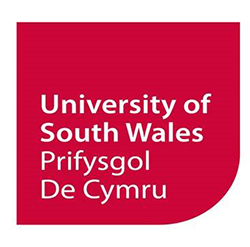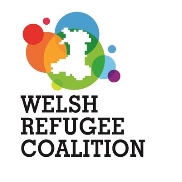Conference Rationale: The Policy Context in Wales and Beyond
Forced migrants bring a huge variety of skills, experiences and abilities and have great potential both for personal development and for contributing to society and economy. However, there are a great many barriers to be overcome in order for them to realise this potential. Many local and national initiatives and institutions aim to provide support to overcome these barriers, but this is within a policy environment that differs between the devolved nations.
Immigration policy itself, with its notorious “hostile environment”, is not devolved. However, education and support for access to employment are both areas where the devolved administrations have made strong in-principle commitments, such as that from both the Scottish and Welsh Governments that “Integration begins from Day One”, with its implication that access to their services should be equally available to all irrespective of immigration status.
Swansea was the first city in Wales to be recognised as a City of Sanctuary in 2010. Since then the sanctuary vision has expanded across Wales, to be taken up in other cities and places as well as in the idea of Wales becoming a Nation of Sanctuary, and eventually the Welsh Government's Nation of Sanctuary Refugee and Asylum Seeker Plan, launched in January 2019 in the Senedd by Deputy Minister Jane Hutt. This plan is strong on principle and has much in common with the Scottish Government's New Scots: refugee integration strategy 2018 to 2022, but is perhaps relatively weak on practical application in different policy areas.
Realising the Potential of Forced Migrants: Expectation versus Reality
The Welsh Refugee Coalition has developed a new Manifesto entitled Nation of Sanctuary – making the vision a reality which highlights seven Key Priorities for the full implementation of this plan, and which all Welsh parties and candidates for the 2021 Senedd elections are being asked to endorse. These Key Priorities are reproduced below.
This Conference is scheduled to take place in Refugee Week, June 2021, six weeks after the elections and the formation of a new administration. It will focus on the gap between, on the one hand, the expectation that the plan should make a difference to the lives of asylum seekers and refugees in Wales and to the communities in which they live; and, on the other, the reality that this difference is much clearer in some areas than others and generally does not match the expectation.
Embracing, Shaping and Replicating Sanctuary
Cross-cutting the Higher Education and Employability Policy and Practice streams, the break out room discussions will bring together three sets of considerations of sub-themes:
Embracing Sanctuary – examples of organisations and specific policies which have embraced the principle of sanctuary and turned it into action.
Shaping Sanctuary – how the lived experience (opportunities and impediments) of seeking asylum has shaped the way in which the principle of Sanctuary is expressed, including how it relates to policy and budgets.
Replicating Sanctuary – what we have learnt over 10 years, what we continue to learn, and how learning can be shared both by building on good practice locally and replicating from one organisation or locality to another, and through organised elements of monitoring and evaluation built in to broader policies.
Priorities: Welsh Refugee Coalition Manifesto for a Nation of Sanctuary, 2021
- Make the Nation of Sanctuary vision a reality through a new strategy with clear actions, dedicated budget, cross-departmental commitments, timescales and a robust monitoring and evaluation framework.
- Introduce a cross-cutting commitment on access to all Welsh public services for everyone who needs them, regardless of immigration status.
- Ensure integration from day one through orientation, language support, training and targeted support to develop skills and employment opportunities.
- Ensure access to health and social services, in particular specialist mental health services, with better interpretation support and steps to overcome cultural barriers.
- Improve access to education for migrant, refugee and asylum seeking children and young people, including education-related financial support, transport, school meals and childcare.
- Develop effective support for employability and progression once in employment through specific career pathways to priority sectors, volunteering, work related language skills and other training.
Secure safe and dignified accommodation for all, including projects to support and provide advice to people made homeless and destitute, widening the pool of suitable accommodation and ensuring digital access for people in asylum accommodation.











